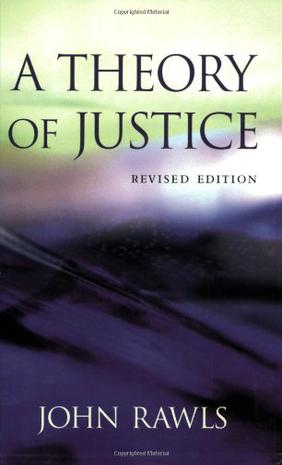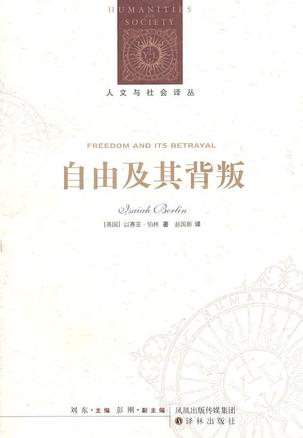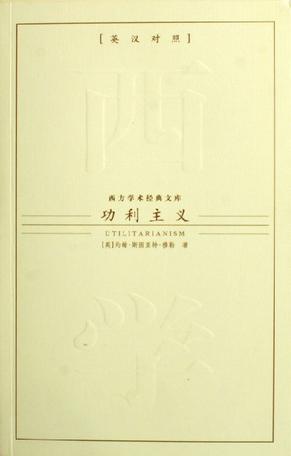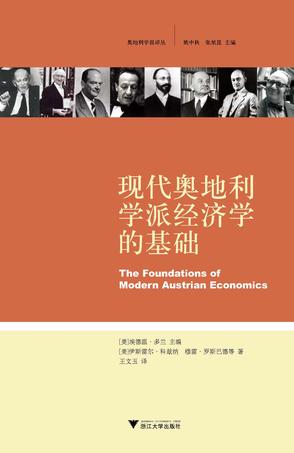-

A Theory of Justice
A Theory of Justice is a widely-read book of political and moral philosophy by John Rawls. It was originally published in 1971 and revised in both 1975 (for the translated editions) and 1999. In A Theory of Justice, Rawls attempts to solve the problem of distributive justice by utilising a variant of the familiar device of the social contract. The resultant theory is known as "Justice as Fairness", from which Rawls derives his two famous principles of justice: the liberty principle and the difference principle. [edit] Objective In A Theory of Justice Rawls argues for a principled reconciliation of liberty and equality. Central to this effort is an account of the circumstances of justice (inspired by David Hume), and a fair choice situation (closer in spirit to Kant) for parties facing such circumstances, and seeking principles of justice to guide their conduct. These parties face moderate scarcity, and they are neither naturally altruistic nor purely egoistic: they have ends they seek to advance, but desire to advance them through cooperation with others on mutually acceptable terms. Rawls offers a model of a fair choice situation (the original position with its veil of ignorance) within which parties would hypothetically choose mutually acceptable principles of justice. Under such constraints, Rawls believes that parties would find his favoured principles of justice to be especially attractive, winning out over varied alternatives, including utilitarian and libertarian accounts. [edit] The "original position" Main article: Original position Like Hobbes, Locke, Rousseau and Kant, Rawls belongs to the social contract tradition. However, Rawls' social contract takes a slightly different form from that of previous thinkers. Specifically, Rawls develops what he claims are principles of justice through the use of an entirely and deliberately artificial device he calls the Original position, in which everyone decides principles of justice from behind a veil of ignorance. This "veil" is one that essentially blinds people to all facts about themselves that might cloud what notion of justice is developed. "no one knows his place in society, his class position or social status, nor does anyone know his fortune in the distribution of natural assets and abilities, his intelligence, strength, and the like. I shall even assume that the parties do not know their conceptions of the good or their special psychological propensities. The principles of justice are chosen behind a veil of ignorance." According to Rawls, ignorance of these details about oneself will lead to principles which are fair to all. If an individual does not know how he will end up in his own conceived society, he is likely not going to privilege any one class of people, but rather develop a scheme of justice that treats all fairly. In particular, Rawls claims that those in the Original Position would all adopt a maximin strategy which would maximise the position of the least well-off. They are the principles that rational and free persons concerned to further their own interests would accept in an initial position of equality as defining the fundamentals of the terms of their association [Rawls, p 11] It is important to keep in mind that the agreement that stems from the original position is both hypothetical and nonhistorical. It is hypothetical in the sense that the principles to be derived are what the parties would, under certain legitimating conditions, agree to, not what they have agreed to. In other words, Rawls seeks to persuade us through argument that the principles of justice that he derives are in fact what we would agree upon if we were in the hypothetical situation of the original position and that those principles have moral weight as a result of that. It is nonhistorical in the sense that it is not supposed that the agreement has ever, or indeed could actually be entered into as a matter of fact. Rawls claims that the parties in the original position would adopt two such principles, which would then govern the assignment of rights and duties and regulate the distribution of social and economic advantages across society. [edit] The First Principle of Justice “ First: each person is to have an equal right to the most extensive scheme of equal basic liberties compatible with a similar scheme of liberties for others.[1] ” The basic liberties of citizens are, roughly speaking, political liberty (i.e., to vote and run for office); freedom of speech and assembly, liberty of conscience and freedom of thought, freedom of the person along with the right to hold (personal) property; and freedom from arbitrary arrest. It is a matter of some debate whether freedom of contract can be inferred as being included among these basic liberties. The first principle is more or less absolute, and may not be violated, even for the sake of the second principle, above an unspecified but low level of economic development (i.e. the first principle is, under most conditions, lexically prior to the second principle). However, because various basic liberties may conflict, it may be necessary to trade them off against each other for the sake of obtaining the largest possible system of rights. There is thus some uncertainty as to exactly what is mandated by the principle, and it is possible that a plurality of sets of liberties satisfy its requirements. [edit] The Second Principle of Justice Social and economic inequalities are to be arranged so that (Rawls, 1971, p.303): a) they are to be of the greatest benefit to the least-advantaged members of society (the difference principle). b) offices and positions must be open to everyone under conditions of (fair equality of opportunity) Rawls' claim in b) is that departures from equality of a list of what he calls primary goods – 'things which a rational man wants whatever else he wants' [Rawls, 1971, pg. 92] – are justified only to the extent that they improve the lot of those who are worst-off under that distribution in comparison with the previous, equal, distribution. His position is at least in some sense egalitarian, with a proviso that equality is not to be achieved by worsening the position of the least advantaged. An important consequence here, however, is that inequalities can actually be just on Rawls's view, as long as they are to the benefit of the least well off. His argument for this position rests heavily on the claim that morally arbitrary factors (for example, the family we're born into) shouldn't determine our life chances or opportunities. Rawls is also keying on an intuition that we do not deserve inborn talents, thus we are not entitled to all the benefits we could possibly receive from them, meaning that at least one of the criteria which could provide an alternative to equality in assessing the justice of distributions is eliminated. The stipulation in a) is prior to that in b) and requires more than meritocracy. 'Fair equality of opportunity' requires not merely that offices and positions are distributed on the basis of merit, but that all have reasonable opportunity to acquire the skills on the basis of which merit is assessed. It is often thought that this stipulation, and even the first principle of justice, may require greater equality than the difference principle, because large social and economic inequalities, even when they are to the advantage of the worst-off, will tend to seriously undermine the value of the political liberties and any measures towards fair equality of opportunity. [edit] Relationship to Rawls's later work Although Rawls never retreated from the core argument of A Theory of Justice, he modified his theory substantially in subsequent works. The discussion in this entry is limited to his views as they stood in A Theory of Justice, which stands on its own as an important (if controversial and much criticized) work of political philosophy. His subsequent work is discussed in the entry titled John Rawls. Of particular note is his work Justice as Fairness: A Restatement (2001), in which he clarified and re-organised much of the argument of A Theory of Justice. [edit] Critics of A Theory of Justice A Theory of Justice made a significant contribution to re-establishing interest in political philosophy, and so it has served as the basis for much of the debate since, meaning that it has been much criticized. In particular, Rawls's colleague at Harvard Robert Nozick wrote a defence of libertarian justice in the aftermath of A Theory of Justice, called Anarchy, State, and Utopia, which was critical of Rawls's work. Because it is, in part, a reaction to A Theory of Justice, the two books are now often read together. Another colleague of Rawls's from Harvard, Michael Walzer, wrote a defence of communitarian political philosophy, entitled "Spheres of Justice," as a result of a seminar he co-taught with Nozick. Robert Paul Wolff wrote Understanding Rawls: A Critique and Reconstruction of A Theory of Justice immediately following the publication of A Theory of Justice, which criticized Rawls from a roughly Marxist perspective. Wolff argues in this work that Rawls's theory is an apology for the status quo insofar as it constructs justice from existing practice and forecloses the possibility that there may be problems of injustice embedded in capitalist social relations, private property or the market economy. Feminist critics of Rawls largely focused on the extent to which Rawls's theory could account for, at all, injustices and hierarchies embedded in familial relations. Rawls argued that justice ought only to apply to the "basic structure of society" for instance, and feminists rallying around the theme of "the personal is political" took Rawls to task for failing to account for injustices found in patriarchal social relations and the sexual division of labor. The assumptions of the original position, and in particular, the use of maximin reasoning, have also been criticized, with the implication either that Rawls designed the original position to derive the two principles, or that an original position more faithful to its initial purpose would not lead to his favored principles. However Rawls does not deny this, he uses the original position in conjunction with an intuitive argument to justify his claim of justice as fairness. Some critics allege that Rawls' argument is weakened in failing to denote healthcare as a primary good. Proponents respond by asserting that affordable and accessible healthcare arises as an inevitable result of the benefits attained by following through with the Original Position. One of the most influential recent criticisms of Rawls' theory has come from the philosopher G.A. Cohen, in a series of influential papers that culminate in his 2000 book If You're An Egalitarian, How Come You're So Rich? Cohen's criticisms are levelled against Rawls' avowal of inequality under the difference principle, against his application of the principle only to social institutions, and against Rawlsian fetishism with primary goods (the metric which Rawls chooses as his currency of equality). -

自由及其背叛
简介: 本书原为以赛亚·伯林1952年在BBC第三套节目所做的系列讲演。他从自由主义的基本理念出发,讨论了近代思想史上的著名思想家爱尔维修、卢梭、费希特、黑格尔、圣西门和迈斯特等人对自由以及人类历史的看法。根据伯林的看法,除了迈斯特是人类自由的公然反对者外,这些思想家都对人类的自由持肯定态度,但他们对自由的理解,却导致了反自由的历史后果。 导读: 伯林最著名的演讲,从未有人以如此流畅和热情的文字谈论过这么抽象的主题。……这些讲座不要求你有专门知识,它们以非常平易的方式介绍了现代政治理论中的一些关键概念。 ——诺埃尔·马尔科姆 伯林最出色的文字:充满活力而不流于浮夸,博学多识而没有卖弄。 ——彼得·沃森 编者前言: 50年前,本书收录的这些长达6小时的演讲在英国广播公司(BBC)无线电台播出,引起了轰动。在此之前,还没有谁在没有现成讲稿的情况下,可以发表这么长时间的演讲,时年43岁的以赛亚·伯林是首开这个冒险先例的正确人选。他情感奔放的演讲风格、别具特色的嗓音(虽说有些人因此很难听懂他的话)、非凡的口才、对论题明显专注的程度、不为人知但马上就能扣人心弦的内容——这一切合在一起,产生了一股强烈的冲击力,时至今日,当年的听众对此依然记忆犹新。每个星期,人们都带着期盼的心情打开收音机,沉浸到伯林的演讲中。约翰·巴罗写道(当年他还是中学生),这些演讲“令我十分激动,每次播出,我都坐在地板上,一边听着身旁的收音机,一边做笔记”。这一系列演讲结束后,《泰晤士报》发表了一篇社论,进行了报道和评论,在读者来信栏目里引发了一阵通信活动,伯林本人也躬与其事。 这些演讲巩固了伯林节节上升的名气:他能把思想哲理方面的东西讲得明白晓畅、引人入胜;而且,在伯林看来,这些演讲也为他五年之后就任牛津大学齐切利社会及政治理论讲座教授奠定了基础。然而这种名望也有令人不快的一面。让伯林一直忧心忡忡的是:他担心自己受到片面的对待,被认为善于做秀,给当成杂耍演员。第二年,他到伦敦经济学院做奥古斯特·孔德纪念基金会讲座的首场演讲,(据说)迈克尔·奥克肖特向听众介绍,他是“讲坛的帕格尼尼”。他的恐惧还是有些根据的,因为他已经成了语速迅疾的高深演说的代称——“惟一能以一个音节说出‘认识论’的人”。不过,他这方面的公共形象并没有对他造成永久性损害,他庞观博采的思想资源,他以独特的风格、明晰性和说服力调动这些思想资源的能力,得到了人们的重要认可。 只有一次演讲(讲卢梭的那次)的录音得以保存下来,录音里有一些噼噼啪啪的杂音,这段录音可以在伦敦的大英图书馆听到。今天要再现该讲座在1952年的效果,这是我们所能接触到的最贴近伯林原意的东西了。不过,这六次演讲的录音(文字)记录还在(虽说有的地方差强人意),经过编辑整理,还可以重新见证伯林非凡的阐述能力,感受到这些较早体现伯林自由观的论述所造成的冲击力;这些自由观之所以广为人知,是因为他在1958年就任齐切利讲座教授时发表的演说《两种自由概念》。不过《自由及其背叛》绝非他后来进一步锤炼的思想的粗糙先导。贯穿于这些早年演讲中的自由观,其基本要义已经全面形成,这种清晰易懂的论述,特别因为它是对具体思想家的口头论述,而不是一部抽象专著,而且还包含那篇就职演说所没有的许多内容,是对他生前已经出版的著作的一个重要补充。 我脑海中曾闪现过一个比较轻薄的念头:将这本书的副标题署为“并非里斯演讲”。安娜·卡琳,英国广播公司第三套节目的制作人,曾经制作过伯林的许多访谈节目。她知道伯林一直准备为宾夕法尼亚州布莱恩·莫尔学院的玛丽·弗莱克斯纳讲座发表系列演讲(他在1952年2月至3月做了演讲),便邀请他在广播中做一遍。她很清楚,说服他不易,因为他经常拒绝上镜,她已做好了失望的准备。不过,让她高兴的是,他居然很乐意。她听了弗莱克斯纳演讲的录音(现已亡佚)之后,就毫不犹豫地另外派给他一个声望很高的角色:里斯讲座演讲人,他是担当这一角色的理想人选。 可是,上级得知后,却裁定伯林不适合,这让卡琳十分尴尬。他们是基于什么理由而得出这种看法的,对此我还未发现任何文字记载。可能只是因为,当时伯林的地位尚未充分确立,而当年选择里斯讲座演讲人的标准比现在保守得多。不管怎么说,没有证据表明反犹主义从中作祟。无论出于什么理由,那些要员的决定是不容变更的,卡琳只好将这个消息透露给伯林。好在他没有生气,这让她很宽慰。 应当说一说伯林对待出版这些录音记录的态度。总的说来,他的态度接近于他对出版自己的梅隆讲座的看法,那个系列讲座13年后发表于华盛顿特区,1999年出版,题为《浪漫主义的根源》。他知道,如果这些录音记录在他有生之年整理成书,就得大幅度修改而且还得扩充内容。正如他在1951年12月11日给卡琳的信中所说:“你不难看出,很多东西向听众泛泛而谈是一回事,把它们付诸冷冰冰的文字则是另一回事。”他当然想以布莱恩·莫尔系列演讲为蓝本出一本书,在演讲发表后一两年之内付梓,可是,正如其他著作一样,他从未试图尽力完成这一必要工作,这两个系列演讲依据的长篇录音记录草稿给放到一边,忘掉了,虽说他已经进行了彻底修改。1993年,我替他弄出一份字迹清晰的复印件,其中包括他对手稿的全部改动以及他后来写的一篇导言,不过我相信,他没有再去看它。这部演讲录的标题是《浪漫主义时代的政治观念》(弗莱克斯纳演讲的原标题),全文接近11万词,我想今后它会在适当时候出版。 我将本书收入的BBC演讲的录音记录整理出来,把最初的草稿交给他,但这份草稿他本人也未曾去审查。我想,几乎可以确定,他再也不会理它了,我曾向他提到过这一想法,还表示了一番遗憾。或许是出于好意,他对我说,我不该那么肯定将来什么都不会发生:“谁知道呢?没准儿12年之后,我会一下子把它拿起来,狠劲修订一番。” (或类似的话)可说这话时是他已经八十多岁了,那活儿可不是九十多岁的人干的。 虽说他的态度有所保留,可并不认为这些演讲全然不可取。他认为有些演讲要比别的好,不过他还是同意,经过“清理”,它们“可以编成一个小册子”。我想,即使它们按照目前的样子出版,也不会有问题。我咨询了在这个论题上比我懂得更多的专家,我的判断进一步得到支持。他们也发现,有些演讲胜过其他,有的阐释目前看来有些过时;但他们几乎一致同意,它的出版是极为可取的。我希望,不应该认为这个结果得到了伯林本人的全面认可 ,这是不言而喻的;不过我的确相信,它公正地体现了伯林对自由的这些敌人的看法,而且,它有助于读者更全面地理解这些观点,将这些出色的演讲添加到他已经出版的著作中,无损他的令名,只要理清它们临时的、即兴的、非正式的性质,不要对本书提出超过它的起因所允许的要求。 BBC演讲不完全是为弗莱克斯纳讲座所准备的打字稿的简缩,也不完全是弗莱克斯纳讲座的重演,就像布莱恩·莫尔的《校园新闻》的每周记要所表明的那样——虽说由于该演讲更早的完整录音记录以及录音缺失的缘故,很难逐句对比二者之间的差异。伯林本人有时说这两场演讲大致相同,例如1953年1月22日他在写给布莱恩·莫尔学院院长凯瑟琳·E.麦克布赖德的信中说: 我在伦敦的广播电台的演讲内容基本上与玛丽·弗莱克斯纳赞助的演讲相同,在此间演讲,我经常想起布莱恩·莫尔,我面对的可不是一百张面孔,我面对的是一张干干净净的办公用桌和边上镶着软木的墙壁——总的说来,我可能更愿意在电台演讲:当众演讲令我惶惑不安。这里的演讲带来了大量的听众来信,它们都是那些最不寻常的人写的,他们好像听过这些东西,他们对于以最惊人的方式出现的历史和政治的主题充满了难以言喻的情感和思想,对于所有来信,我想我有义务做出某种解答。 然而,从BBC和布莱恩·莫尔学院保存的档案材料明显可以看出,就在伯林在美国演讲的前后,这一系列演讲经过了相当大的重新编排,而且,不管怎么说,把同一部演讲辞发表两遍,这不符合伯林的特点,因为他热中于修正自己做过的东西,除此之外,他几乎总是在讲台上对自己的演讲另起炉灶,即便他多次运用同一批材料。 伯林在信中说,他在面对听众时心怀恐惧,我们且引用莱莉娅·布罗德森提供的材料来印证。伯林在布莱恩·莫尔学院的时候,她临时给伯林当秘书,后来她成为该校儿童心理指导门诊的心理工作者。当时她正在读研究生,因而手头拮据,总要想方设法打工挣钱。在写给朋友的一封信里,她描述了伯林的讲学风格,这是我所见过的对伯林演讲风格最生动的描述: 周一晚上我去听他讲费希特,着实给吓了一跳。他匆匆忙忙地向听众鞠了一躬,就在讲台后站稳了身子,眼睛紧盯着他的右边、观众头上的某个地方,然后侃侃而谈,他语速快得吓人,整整一个小时之内,几乎没有片刻的停顿,这个滔滔不绝的演讲显然很出色,不过我没大听懂。他目光注视的方向一直没变,他身体在讲台上前后摇摆不停,每晃一次,大家都以为他要倒下——要么往前倒,要么向后倒。他把右手掌放在左手的掌心,在整整一个小时之内,他猛烈地晃动双手,好像要从中取出什么东西似的。说起来很难让人相信。他话语连珠,说个不停,每句话都很漂亮,却没有停顿,除了出现某些不可思议的、表示转折的标志之外,例如“……所以说,显而易见,康德的自由观在某些方面不同于费希特,唉!”到最后我精疲力竭,不过我敢肯定,要是说我曾听到或看到有人真正处于一种神灵感应状态,当时那一幕便是。几乎无法进行交流,这真是不幸。 现在回过头来说一说本书的形成经过:这部长篇打字稿共有四章,各章标题分别是“作为一门描述性科学的政治”、“自由的观念”、“自由的两种概念:浪漫派和自由主义”、“历史的进程”。就算伯林还写过其他章节,作为最后两讲的底稿,可它们目前并不存在。也许是因为时间不够,伯林没有写出这两讲的底稿,虽说在迈斯特那一讲,他可以利用几年前准备好的打字稿。不管怎么说,演讲最开始是论述六个主题的——虽说在布莱恩·莫尔学院,(在大多数情况下)主要通过阐述两个人的思想来说明每一个论题——最终变成了目前的样子:每一章以标题中人物为中心。在最终选择本书正标题之前,BBC的档案称这个演讲为“人类自由的六个敌人”,我就以它为副标题。我还把演讲的第一部分单独拿出来,作为整部演讲的总论,因为这是演讲本身所提供的。 编辑这个演讲集在很多方面类似于编辑伯林的梅隆讲座的演讲,虽说在编辑后者的时候,我手头上有更多不同版本的录音文稿、作者对录音文稿的更多评注、更多的相关笔记可供发掘。在此,我就不重复我在《浪漫主义的起源》前言中谈到的编辑过程,《自由及其背叛》收入的演讲与它的主要区别在于,《自由及其背叛》只有一篇演讲的录音。这就意味着,我要花更大的气力四处猜测,以恢复伯林讲话的原貌。本书的主体部分根据BBC员工的原始录音记录, BBC员工当然不熟悉伯林的声音和他的论题,他们发现这项工作很难进行;他们时常被难倒,录音记录也让人莫名其妙[例如:圣西门(SaintSimon)给记录成了“Sir Seymour”]即便录音里的话经常让人听起来疑窦丛生,不过,很显然,伯林说的是圣西门,几乎一直如此。 同以往一样,我在寻找伯林引文出处的过程中得到了一些专家的帮助,正如我在本书[边码]第155—156页注释的序文中所说。让我和读者受惠最多的自然是作者,不过,还有已故的安娜·卡琳,不应低估她在伯林思想生涯中的作用。她坚定不移、一再敦促他到电台演讲。在长时间的录音以及必要的重录过程中,她一直在诱导他,支持他,因为在演讲的过程中,他发现自己很有压力(部分原因是它助长了他毕生的自我怀疑态度),这是他的特点。她是一位出色的编辑:“你剪辑、浓缩、提炼的本领真是不得了”,伯林在写给她的信中说——这封信我已经引用过,他还在信中提到她的“神手”。他们的通信表明,这两位俄国犹太移民是多么注重个人感情。无论当时还是后来,伯林需要一位思想上的监制帮助他实现全部潜能。安娜·卡琳凑巧有效承担了这一角色,这就是我将此书题献给她、以资纪念的原因。 亨利·哈代 牛津大学沃尔夫森学院 2001年5月 -

政治自由主义
《政治自由主义》是以《正义论》蜚声世界的美国当代著名哲学家、被哈贝马斯誉为当代实践哲学史上“轴心式转折点”的哈佛大学教授约翰・罗尔斯的又一力作。在其中,罗尔斯继续并修正了他在《正义论》中发展出的公正观念,但是对其哲学基础进行了根本的修正。在其早期著作中,罗尔斯假定,秩序良好的社会是一个稳定的、在基本的道德信念上同质、在社会生活各方面存在广泛共识的社会,但是在现代民主社会中,互不相容、无法调和的宗教、哲学与道德学说,多元地共存于民主制度的框架之内,而且自由的制度本身就强化、鼓励着不同质的学说的多元化,并视之为自由社会的永恒状况。 自由而平等的公民如何既保有相互冲突、互不相容的生活观与世界观,又同时生活在一个稳定而公正的社会?这就要对“秩序良好的社会”有新的理解。秩序良好不再是社会归依于某种基础性的道德信念,而是共同认可的一种政治的正义观念:“这种正义观念、既是各种主流性的宗教、哲学与道德学说间的重叠共识的焦点,也是西方三百年来整个公共文让与思想运动――以宗教宽容为标志的宗教改革是其开端,而基本自由权优先性得到宪法的确立是其完成――的最后结果。 -

反对方法
本书是当代美国著名科学哲学家保罗·法伊尔阿本德的代表作。作者激烈抨击唯理主义科学方法论的主要倾向,论证说最成功的科学研究从来不是按照理性方法进行的,不应要求科学家遵奉某一种方法论从事科学活动,而应以知识论无政府主义取代理性主义,充分发挥科学家的独创性,倡导著名的“怎么都行”的方法论原则。本书观点独特,自成一家,在西方学术界影响甚大。 -

功利主义
《功利主义》(英汉对照)内容包括:概论、功利主义的含义、功利原理的终极约束力、功利原理的证明、功利与正义等。 -

现代奥地利学派经济学的基础
奥地利学派经济学有着悠久的传统,在其发展过程中曾形成过许多影响深远的经济学思想。本书是对1974年首届奥地利学派经济学研讨会上的重要论文的系统汇编。与会学者普遍关注两个一般性问题,即奥地利学派对经济理论的突出贡献是什么?奥地利学派的重点问题和新方向是什么?通过回答上述问题,本书已不再是单纯的会议记录,而具有了宣言的性质。 全书共分为四篇,第一篇“导言”,对奥地利学派经济学作为非常规科学的地位进行了论述。第二篇“理论与方法”收入五篇文章,深入阐释了奥地利学派经济学的方法论,并对奥地利学派的历史背景、奥地利学派经济学的哲学和伦理学内涵等做了独到的介绍和分析。第三篇“应用”收入七篇文章,展现了奥地利学派对经济领域中一些关键问题的基本立场和解决方案。第四篇“结语”,具有较强的论辩色彩,文中指出了奥地利学派经济学的现实处境,并申明了该学派经济学家们的主要任务。 本书有助于读者从多角度了解奥地利学派经济学的核心思想及其独特之处。书中所收论文在今天看来仍颇具理论与现实意义,并可令普通读者对奥地利学派有一个基本的了解。此外,本书对于研究经济思想史也具有参考价值。